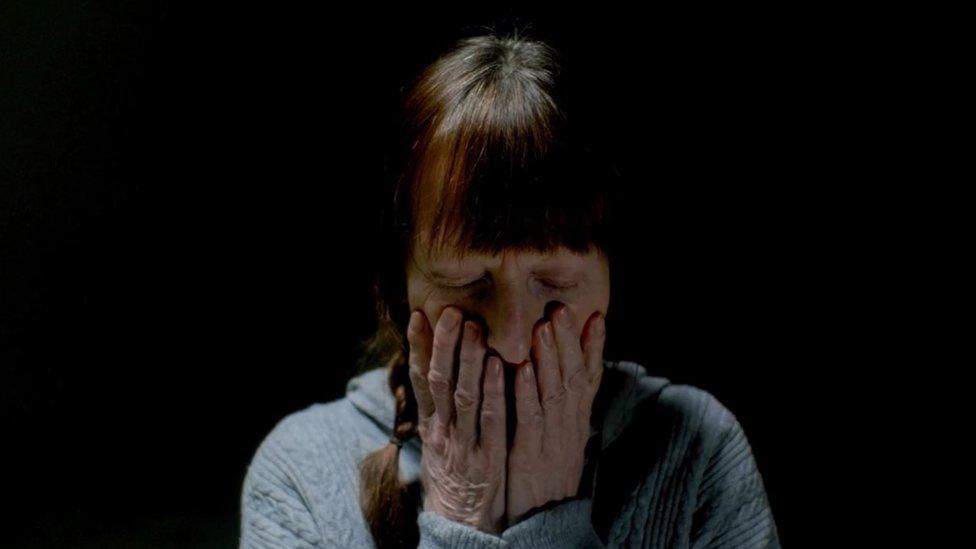Cost-of-living crisis trapping women in abusive relationships, charity says
- Published
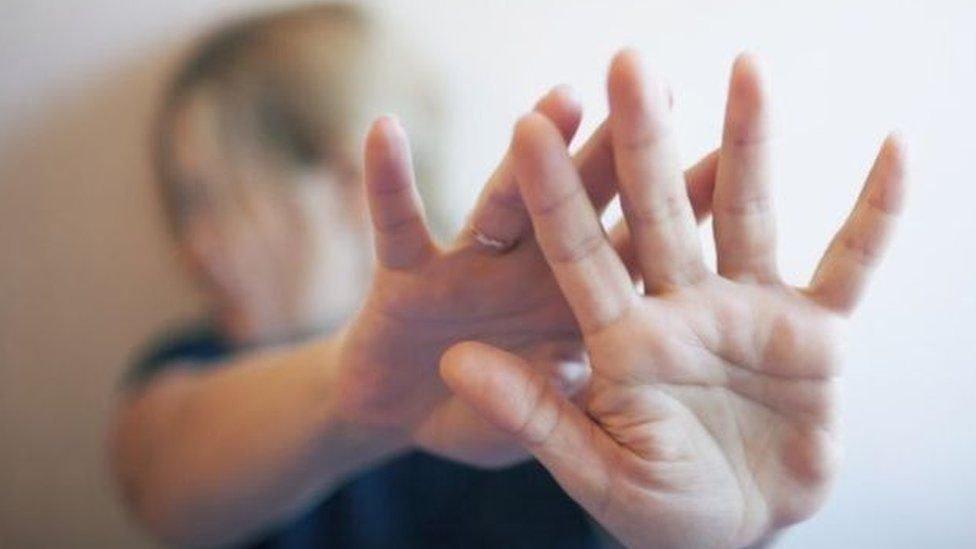
Womens Aid says there has been no increase in funding for its grant since 2009
The cost-of-living crisis is trapping women in abusive relationships, Women's Aid has said.
The situation is also affecting the charity's services and it is calling for more money to tackle domestic violence in Northern Ireland.
It comes as new statistics show there were more domestic abuse crimes recorded in 2021-22 than any other year since records began in 2004/05.
From 1 July 2021 to 30 June 2022, domestic abuse crimes rose to 22,142.
This was an increase of 2,519 from the year before, according to the Police Service of Northern Ireland (PSNI).
PSNI figures also showed that from 1 November 2021 to 31 October 2022, there were nine homicides with a domestic abuse motivation, up from eight the year before.
Four of the victims were women.
Police received a call every 16 minutes in relation to domestic abuse.
A new Women's Aid campaign Time is Ticking, is highlighting that demand has never been higher for its services.
Kelly Andrews, from the charity's Belfast and Lisburn branch, said: "Unfortunately many women will continue to remain in abusive relationships because they can't afford to leave.
"So like Covid created certain conditions where women are locked in, the cost-of-living crisis is creating an environment where many women feel like they cannot leave the family home because they just can't afford to do it."
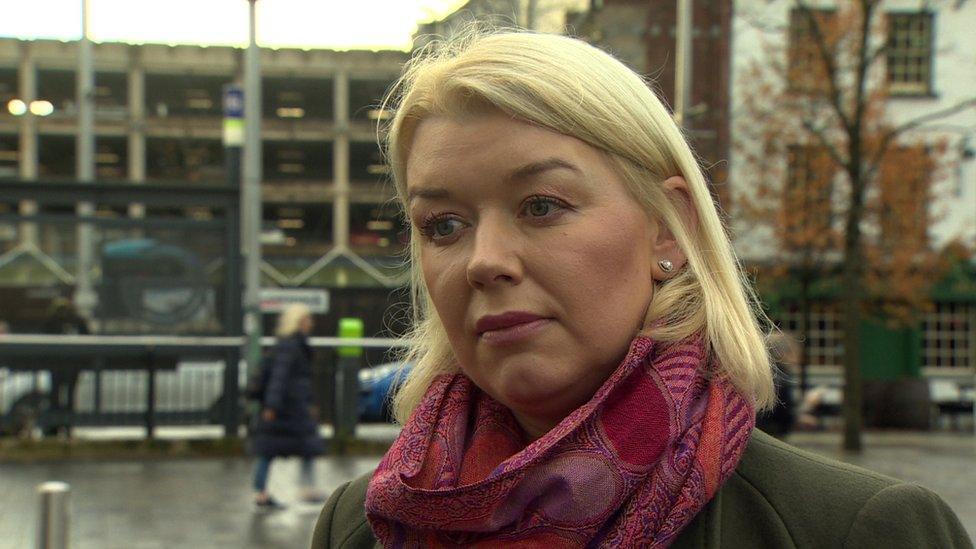
Kelly Andrews from Womens Aid says some women can't afford to leave abusive relationships with rising costs
Sarah Mason, CEO of the charity, has said funding had not kept up with demand.
"Our major concern is that there hasn't been any uplift in our supporting people grant since 2009," Ms Mason said.
"We're already supporting more than 6,000 women every year. This year it has risen to 7,444.
"If that goes up each year we need more staff to be able to support those women because once a woman comes into our support process, she can be there for quite some time."
Julie-Anne Walkden sought the help of Women's Aid in 2015 after her being attacked by her husband and left in hospital.
She ended up staying in a refuge for six weeks with her children.
"I didn't actually have any family in Northern Ireland, I didn't have anyone to scoop me up and feel safe," she said.
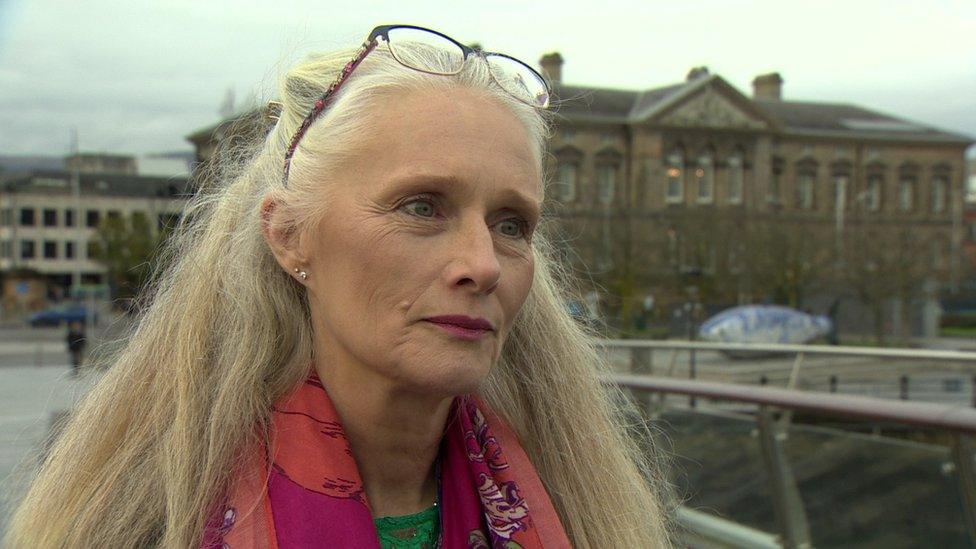
Julie-Ann Walkden said Women's Aid helped rebuild her life
"The women in there, their level of compassion is astounding - they've got the skills and experience and actually were able to embrace my needs and difficulties and understand that, but also the needs of my children and provide one to one counselling almost 24/7.
"I think from an emotional and physical wellbeing perspective, they picked up the pieces and helped me rebuild my life.
"Although the hospital and ambulance services helped to save my life - they helped me to rebuild it."
Campaigners are calling on Northern Ireland Secretary Chris Heaton-Harris to intervene directly and provide additional funding to help tackle domestic violence.
The Men's Action Network said it was also seeing a rise in the number of men approaching it with suicidal thoughts due to abuse and coercive control.
The group said men were still much less likely to come forward if they were victims of domestic abuse.
"We would encourage male victims of domestic abuse, coercive control and violence to come forward and get the help they need and deserve," it said.
"We also have to ensure that we collectively and actively remove the stigmas attached to this crime for male victims; asking for support isn't a weakness, it's a strength."
Christmas period
In 2021, the PSNI experienced a rise in the number of domestic abuse calls made over the Christmas period.
Det Supt Lindsay Fisher said police were particularly worried about the upcoming festive period.
"This Christmas we are set against the backdrop of the cost-of-living crisis and that will increase pressures and stresses within the family environment," she said.
"So I would really encourage all family members, friends, employers, employees - look for the signs of domestic abuse.
"Just think about that person they see, is it changed behaviour or maybe making excuses for not going outside or why they're wearing something maybe when it's hot inside.
"So just really to be aware and to think about those signs."
Related topics
- Published12 January 2022
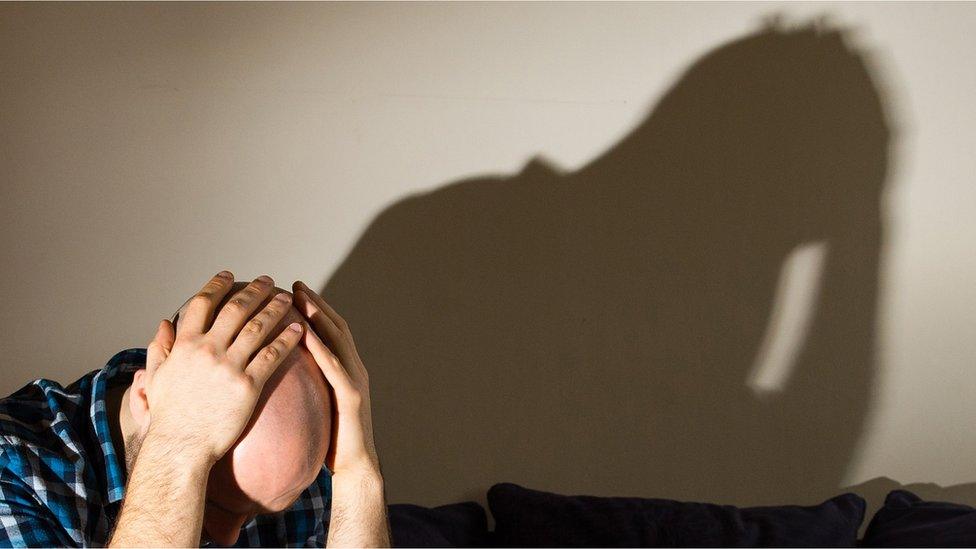
- Published23 March 2021

- Published21 February 2022
